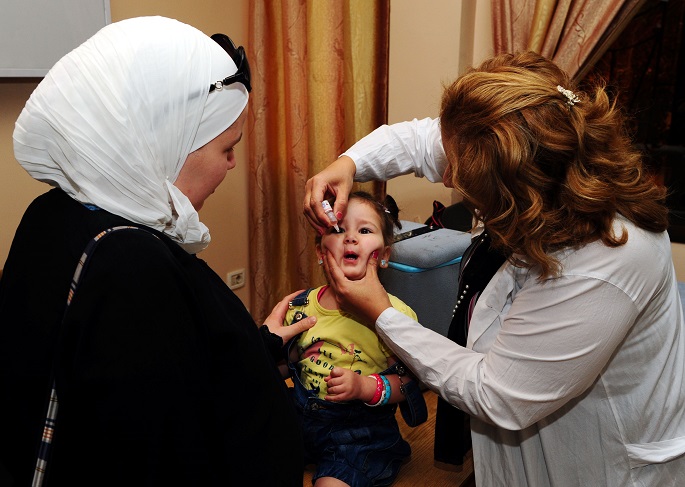WHO for $11m to provide life-saving health care to Syrians
Published : 21 Aug 2018, 00:17
The World Health Organization (WHO) appealed on Monday for 11 million U.S. dollars in critical funding to provide life-saving health care to people in northwestern Syria where conflicts have been escalating.
Hundreds of thousands of people in parts of Aleppo, Hama, Idleb, and Lattakia governorates in northwestern Syria, many of whom have been previously displaced, may be displaced yet again, as they flee growing insecurity and violence, the WHO said, adding that the situation in Idleb is particularly dire and more than half a million people have been displaced to and within the governorate since January 2017.
Meanwhile, growing levels of crime and inter-factional fighting are adding to the insecurity, and targeted assassinations and kidnappings are on the rise.
As many internally displaced people (IDPs) are living in makeshift, overcrowded shelters with little access to health care and safe water and sanitation, the WHO warned that poor health following years of conflict makes them vulnerable to communicable diseases.
For example, rates of acute malnutrition are likely to increase, and a decline in vaccination coverage rates may lead to renewed outbreaks of vaccine-preventable diseases such as polio, jeopardizing the WHO's efforts to eradicate the disease worldwide.
"The health situation in northwest Syria is already dire and looks set to deteriorate. If WHO does not receive additional funding, more than two million people caught in the cross-fire may have no access to essential health care services, including life-saving trauma care," said Michel Thieren, WHO regional emergencies director. "As matters stand, over half of the country's public health care facilities have been destroyed or forced to close after years of conflict."
Facing widespread need across many parts of Syria, the humanitarian community is finding itself increasingly compromised as a gaping funding deficit for health has placed millions of vulnerable Syrians at increased risk.
To cope with the situation, the WHO said it will use any additional funds received from donors to support primary health care, childhood vaccination and trauma services in northwest Syria.
It will also strengthen referral systems to ensure that critically ill and wounded patients can be transferred to hospitals for specialized care, while facilitating medical evacuations and deliver essential life-saving and life-sustaining medicines and equipment to hospitals, clinics and mobile teams to help them treat people in need.


